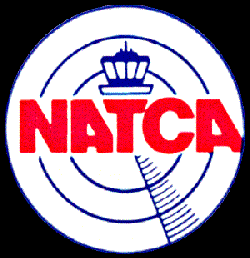Fri, Mar 28, 2003
One Controller's View
An ANN Reader, Mark Boyer, wrote us about
one of the TSA's most-recent tricks: requiring discrete transponder
codes for VFR flights in certain airspace, over what it considers
the "important people" in this country:
 Gentlemen, I read with great interest your account
of the ADIZ and FAA controller problems in NY.
Gentlemen, I read with great interest your account
of the ADIZ and FAA controller problems in NY.
I worked in the New York TRACON for 8 years as a controller, and
I can tell you, without doubt, that the VFR traffic in the area
will be severely hampered. There is an element of the controller
workforce who will welcome this restriction as an opportunity to
once and for all rid themselves of the 'VFR nuisance!'
You must spread the word far and wide and LOUD, that if we want
to protect our right to VFR flight, then we must raise every effort
to prevent this ADIZ from becoming permanent status.
 The FAA does not even have the capacity to handle
every VFR flight on a discrete code. Even a sunny spring day brings
the VFR services to a crawl. It's not making anything safer; it's
just more inconvenient: They ran out of codes the very first day.
They're running out of code subsets for IFR -- how could they
possibly cover VFR? There's six sectors in the NY TRACON -- each
sector is allocated 20 to 30 VFR codes, and that's it. The
computers do not have the capacity, the needed transponder codes do
not exist, and the controller workforce is not staffed to handle
the regular heavy VFR traffic. Radar control positions are not
staffed on a regular basis so that controllers can be on 2 hour
breaks and early work departures.
The FAA does not even have the capacity to handle
every VFR flight on a discrete code. Even a sunny spring day brings
the VFR services to a crawl. It's not making anything safer; it's
just more inconvenient: They ran out of codes the very first day.
They're running out of code subsets for IFR -- how could they
possibly cover VFR? There's six sectors in the NY TRACON -- each
sector is allocated 20 to 30 VFR codes, and that's it. The
computers do not have the capacity, the needed transponder codes do
not exist, and the controller workforce is not staffed to handle
the regular heavy VFR traffic. Radar control positions are not
staffed on a regular basis so that controllers can be on 2 hour
breaks and early work departures.
I can tell you with out doubt that if you investigate this
fully, you will be appalled at the waste and abuse in our FAA. We
the pilots are being done a great disservice, and my fear is that
we will stand by and argue the argument while our freedoms are
taken away.
You are free to contact me for more information and details.
...The FAA is a needed agency with some great people, but this is
an agency that is broken from within and is in need of great
repair. If it is not fixed, they will not suffer, but we the pilots
will. -- Mark Boyer
More News
Improvements Stack as Brand Readies for Mass Production Samson Sky updated followers on its flying car progress, describing some of the travails of the wind tunnel as they get clos>[...]
LAHSO An acronym for “Land and Hold Short Operation.” These operations include landing and holding short of an intersecting runway, a taxiway, a predetermined point, or>[...]
Dave Juwel's Aviation Marketing Stories ITBOA BNITBOB ... what does that mean? It's not gibberish, it's a lengthy acronym for "In The Business Of Aviation ... But Not In The Busine>[...]
Aero Linx: Space Medicine Association (SMA) The Space Medicine Branch was founded in 1951 as the first constituent organization of the Aerospace Medical Association (AsMA). In 2006>[...]
Back-Taxi A term used by air traffic controllers to taxi an aircraft on the runway opposite to the traffic flow. The aircraft may be instructed to back-taxi to the beginning of the>[...]
 Samson Sky Hits the Wind Tunnel
Samson Sky Hits the Wind Tunnel ANN's Daily Aero-Term (05.22.24): LAHSO
ANN's Daily Aero-Term (05.22.24): LAHSO Aero-FAQ: Dave Juwel's Aviation Marketing Stories -- ITBOA BNITBOB
Aero-FAQ: Dave Juwel's Aviation Marketing Stories -- ITBOA BNITBOB ANN's Daily Aero-Linx (05.19.24)
ANN's Daily Aero-Linx (05.19.24) ANN's Daily Aero-Term (05.19.24): Back-Taxi
ANN's Daily Aero-Term (05.19.24): Back-Taxi




